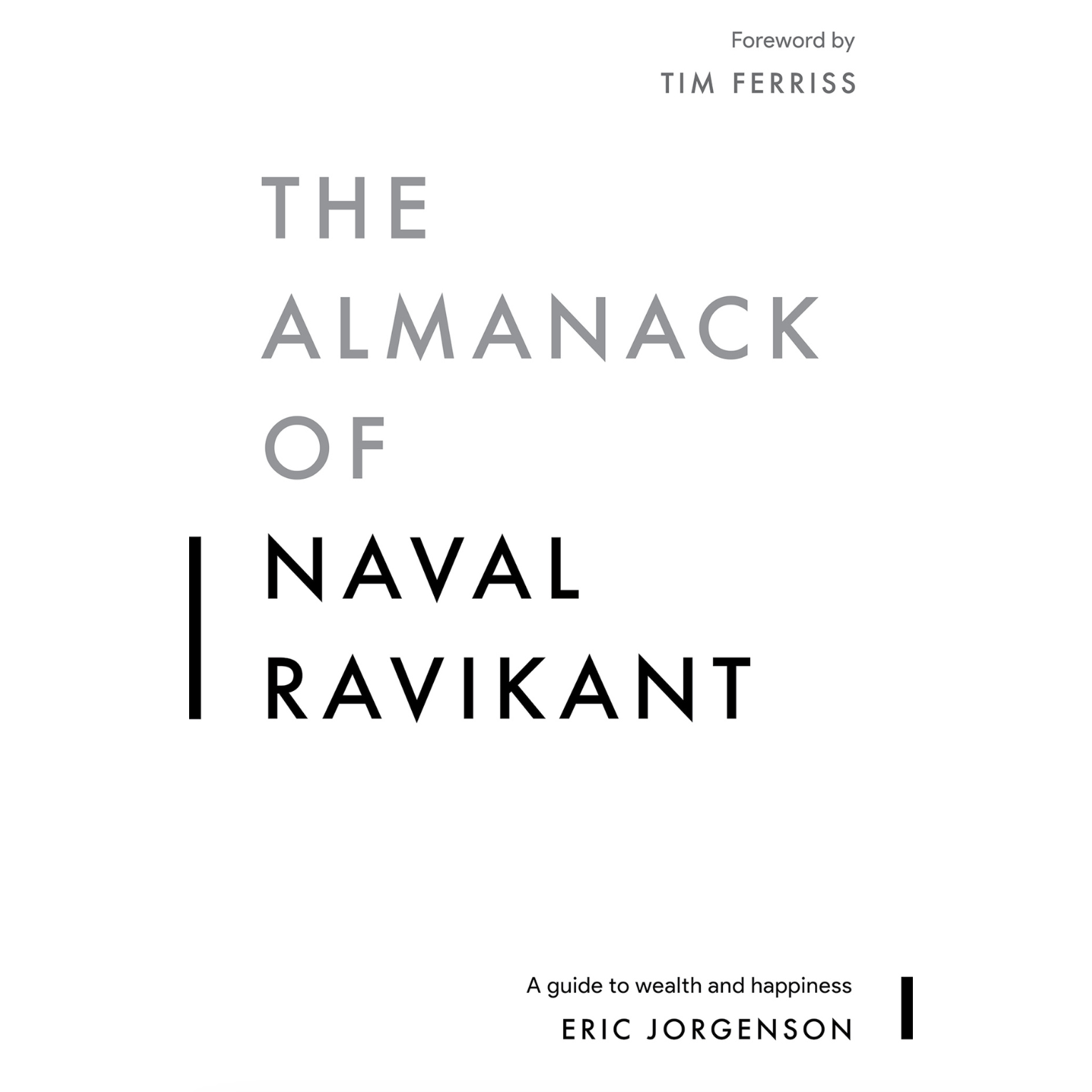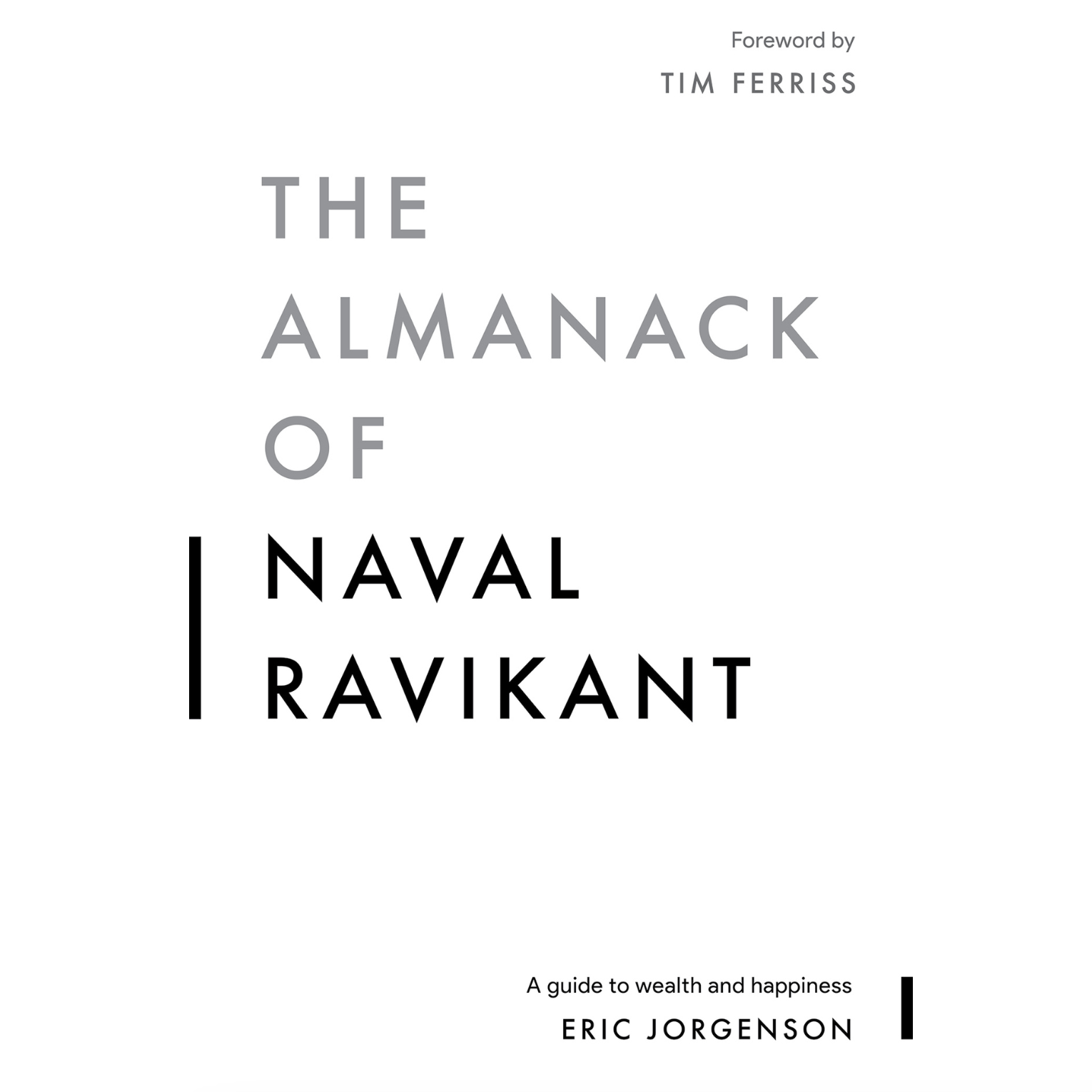Book Summary: The Almanack of Naval Ravikant by Eric Jorgenson, Jack Butcher, and Tim Ferriss
This blog post summarises and discusses "The Almanack of Naval Ravikant". The book's key takeaways include the importance of permissionless leverage, thinking from first principles, owning equity in a business, specific knowledge, and being a contrarian thinker.

Foreword
I'm reading many books on productivity, success, happiness, and self-optimization so that I may merge the most outstanding concepts into a singular Deliberate Diligence Philosophy.
Starting with this book about Naval Ravikant's life practices, I'll begin publishing brief book discussions and summaries for Deliberate-Diligence.com based on the highlights I took on my kindle, offering the information you may need to decide whether or not to read the book.
The Book

The Almanack of Naval Ravikant: A Guide to Wealth and Happiness
by Eric Jorgenson (Author), Jack Butcher (Illustrations), and Tim Ferriss (Foreword)
The book "The Almanack of Naval Ravikant", written by Eric Jorgenson, Jack Butcher and Tim Ferriss, is a collection of insights and wisdom from entrepreneur and investor Naval Ravikant, who is quite famous in the productivity niche and Twitter.
The goal of this book is to discuss a wide variety of issues, including how to "become rich," discover one's life's work and the value of practising self-discipline. This book aims to be a wealth of helpful information for anyone seeking to better themselves professionally, personally, or in both areas.

My Opinion
The book's writing style is fascinating; it's based on Naval's renowned skill at distilling complex ideas into the fewest possible characters, honed over many years of tweeting.
Because of this, the book has a high ratio of highlights to text, making it simple to read and quick to finish, especially the first part.
I think the ideas in this book are well-rounded and extensive; they are well worth exploring. Not finding anything novel in it was probably because I've already read so much in that field. Despite that, I enjoyed reading the book.
The most important idea he delivers is the significance of employing permissionless leverage (like software code or content) to build a career, which means not trading time for many 1:1. ("Society will pay you for the value you create").
As the author of the blog Deliberate Diligence, you can bet that I fully endorse this philosophy.

My Book Notes
- The book suggests that to become financially successful; one should think from first principles, question nearly everything, and be good at not fooling oneself.
- The book emphasizes the importance of owning equity in a business to achieve financial freedom instead of renting out one's time.
- The book suggests that to be successful, one should give society what it wants but does not yet know how to get at scale.
- The book encourages readers to play iterated games, as all returns in life come from compound interest.
- The book suggests that it is crucial to pick business partners with high intelligence, energy, and integrity, as well as being able to sell and build.
- The book emphasizes the importance of specific knowledge, which is the knowledge that cannot be trained for and is found by pursuing one's genuine curiosity and passion.
- The book suggests that fortunes require leverage, which can come from capital, people, and products with no marginal cost of replication, such as code and media.
- The book encourages readers to set and enforce an aspirational personal hourly rate to become the best in the world at what they do and to keep redefining what they do until this is true.
- The book notes that there are no get-rich-quick schemes, that technology is the set of things that don't quite work yet, and that society always wants new things.
- The book encourages readers to think and be bored for great ideas
- The book emphasizes the importance of being a contrarian thinker and reasoning independently
- The book encourages readers to question one's habits and beliefs
- The book emphasizes the importance of taking time to think and have good ideas for one's business by encouraging taking at least one day a week, preferably two, where one can have time to think and be bored, as it is only when one is bored that they can have great ideas.
- The book encourages readers to be contrarian thinkers, reason independently from the ground up, and resist pressure to conform.
- The book emphasizes the importance of being able to uncondition oneself, take one's habits apart, and question whether they serve one's current goals and aspirations.
- The book mentions the importance of mental models and how he loads his head full of cognitive models from sources such as evolution, game theory, and Charlie Munger.
- The book suggests using tweets and other people's tweets as maxims that help compress one's learnings and recall them.
- The book emphasizes the importance of taking action and how Julius Caesar famously said, "If you want it done, then go. And if not, then send."
- The book suggests that in small companies, it is essential for everyone to feel like a principal and not an agent.
- The book notes that the more closely one can tie someone's compensation to the exact value they're creating, the more they turn them into a principal, and the less they turn them into an agent.
- The book notes that in the intellectual domain, compound interest rules and that reading science, math, and philosophy for one hour per day can put one at the upper echelon of human success within seven years.
- The book encourages readers to learn to love to read.
- The book notes that if one cannot decide, the answer is no, as modern society is full of options, and one should lean into things with short-term pain but long-term gain.
- The book encourages readers to take action and make a change but also acknowledges that most people don't want to change. It suggests that readers should at least recognize this and be aware of it, and give themselves a minor change they can carry out.
- The book emphasizes the importance of being impatient with actions but patient with results, suggesting that readers should do anything they must do; they should get it done as life is slipping away. One shouldn't spend it waiting in line or doing things that aren't part of their mission.
- The book suggests that readers should set up systems instead of specific goals and that most people read designed for social approval.
- The book emphasizes the importance of being contrarian and doing one's own thing, regardless of the social outcome. It suggests that for self-improvement without self-discipline, readers should update their self-image.
- The book notes that there are no "adults", that everyone makes it up as they go along, and that one should find their path and figure it out themselves.
- The book emphasizes the importance of valuing one's time, as it is all one has and is more important than money or friends, and suggests not wasting time and not spending it making other people happy, as it's not one's problem.
- The book suggests that people who live far below their means enjoy a freedom that people busy upgrading their lifestyles can't fathom.
- The book suggests that there is no meaning or purpose to life and that anything one does will fade and disappear, and that the author means that in physics, the arrow of time goes in one direction and that nothing lasts forever, including the human race and the planet.
- The book suggests that no one will remember you past a certain number of generations, whether you're an artist, a poet, a conqueror, a pauper, or anyone else.
That's it! You can fetch a copy of this book on Amazon for 1-2$ or so.
Feel free to add your tips and thoughts to this page's comment section, Twitter or LinkedIn!
Best regards,
-- Martin from Deliberate-Diligence.com

Discussion